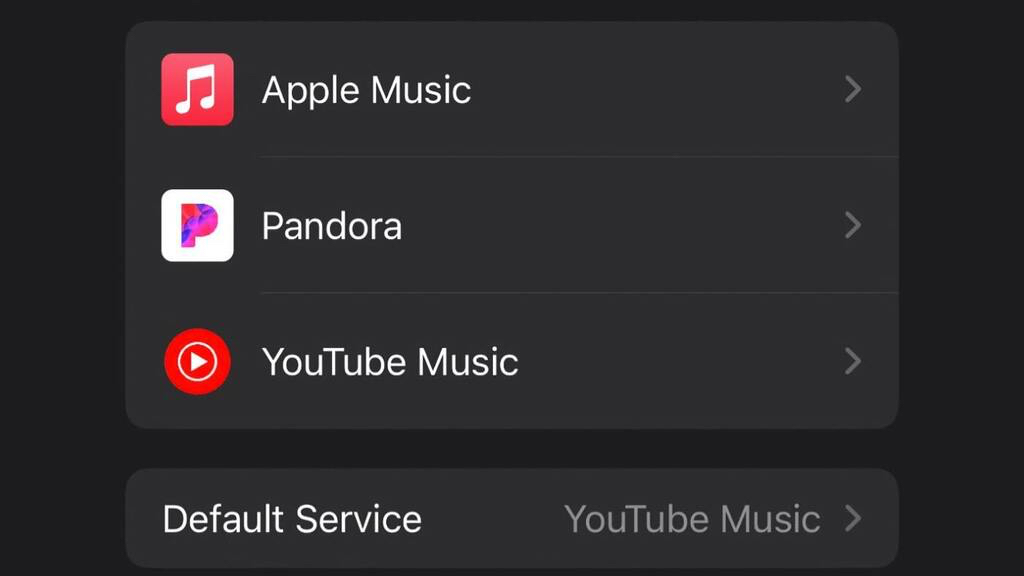YouTube Music is now available directly on Apple's HomePod and HomePod mini, thanks to new Siri integration support in the YouTube Music app.

The change means subscribers to the streaming service can now choose to use voice commands to start YouTube Music on a HomePod, without having to append "on YouTube Music" to every request. From Google's support document:
To set up Siri integration for YouTube Music, make sure you have updated the app, then follow these steps.
After you have done that, you will need to select YouTube as the "Default Service" for your HomePod(s).

Note that to connect YouTube Music to HomePod, you will need to have either a YouTube Music or YouTube Premium account.
Apple has supported a handful of third-party music services on HomePod for the last couple of years, and the functionality is already available with Pandora, iHeartRadio, Deezer, and TuneIn Radio.
Other music services including Spotify have not supported this option even though Apple made the SiriKit Media feature available in iOS 14, so it remains limited in scope. With the direct play function, users can set a third-party service as a default music option, and when Siri on HomePod is asked to play content, Siri will play music from the selected service.
This article, "YouTube Music Integration Comes to HomePod" first appeared on MacRumors.com
Discuss this article in our forums
Source: TechRadar

The change means subscribers to the streaming service can now choose to use voice commands to start YouTube Music on a HomePod, without having to append "on YouTube Music" to every request. From Google's support document:
YouTube Music is supported on the following Apple HomePod models: Apple HomePod 1st Generation, Apple HomePod 2nd Generation, Apple HomePod Mini.Support for the option was announced by YouTube Music in a Reddit post spotted by 9to5Google. The update has been expected since September, when hidden code was revealed in the app.
With YouTube Music on Apple HomePod, you can:
– Use Siri voice commands or physical touch controls on Apple HomePod to play music
– Handoff playback between your Apple HomePod and iPhone, and vice versa
– Control playback in the Apple Home app.
To set up Siri integration for YouTube Music, make sure you have updated the app, then follow these steps.
- Open the YouTube Music app.
- Tap your profile image in the top-right corner.
- Go to Settings ➝ Connected Apps.
- Select Connect with HomePod.
- Tap Use in Home.
After you have done that, you will need to select YouTube as the "Default Service" for your HomePod(s).
- Open the Home app on iPhone or iPad.
- Tap the More button (three encircled dots) in the top-right corner.
- Tap Home Settings.
- Tap your username under the "People" section.
- Tap Default Service and choose YouTube Music.

Note that to connect YouTube Music to HomePod, you will need to have either a YouTube Music or YouTube Premium account.
Apple has supported a handful of third-party music services on HomePod for the last couple of years, and the functionality is already available with Pandora, iHeartRadio, Deezer, and TuneIn Radio.
Other music services including Spotify have not supported this option even though Apple made the SiriKit Media feature available in iOS 14, so it remains limited in scope. With the direct play function, users can set a third-party service as a default music option, and when Siri on HomePod is asked to play content, Siri will play music from the selected service.
Related Roundups: HomePod, HomePod mini
Tag: YouTube Music
Buyer's Guide: HomePod (Buy Now), HomePod Mini (Neutral)
Related Forum: HomePod, HomeKit, CarPlay, Home & Auto Technology
This article, "YouTube Music Integration Comes to HomePod" first appeared on MacRumors.com
Discuss this article in our forums
Source: TechRadar